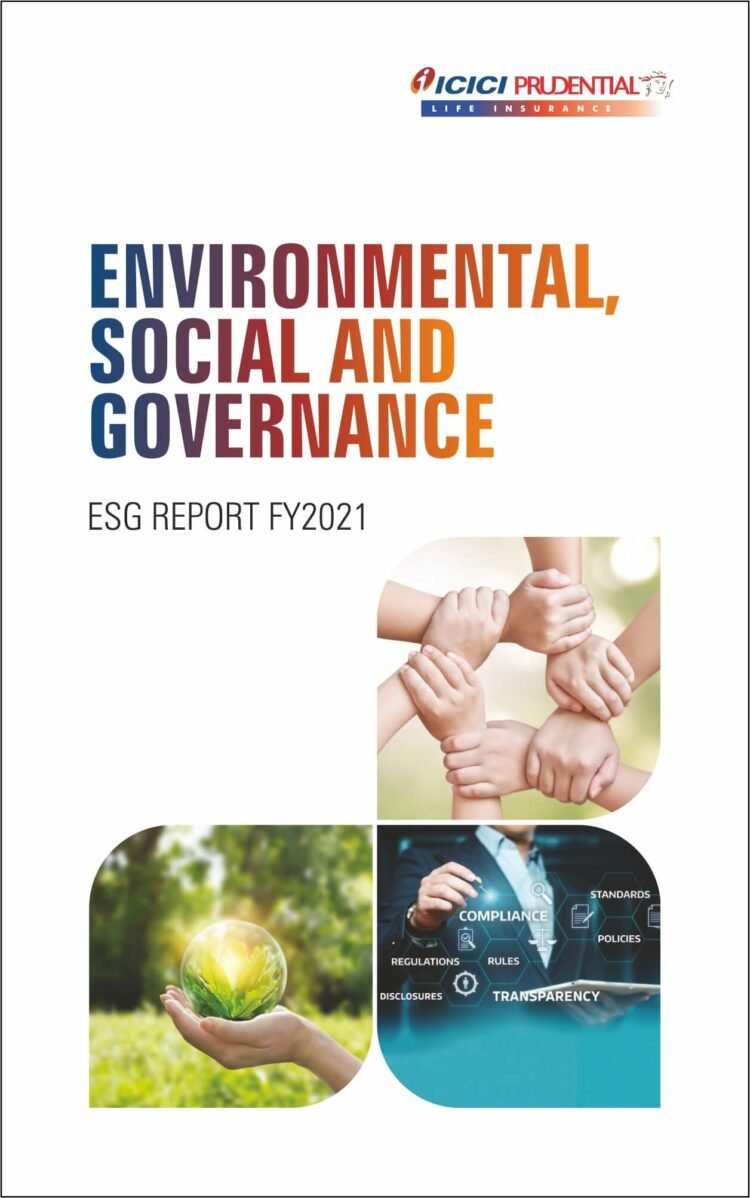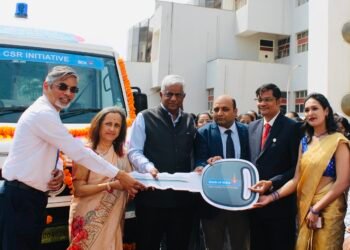ICICI Prudential Life Insurance Company has released its 2nd ESG Report for the year 2020-21. The organisation firmly believes in ensuring long-term sustainability by undertaking holistic and proactive action.
The last three years have been landmark years for ICICI Prudential for their strategic transformation, business aspirations, and value creation for shareholders.
The report is built using the three pillars of sustainability: Environment-Conscious use, re-use and regeneration of its resources, Social – Empathy, and inclusion for all stakeholders, and Governance – Transparency and trust to provide equal development opportunities for everyone.
As the business model is intertwined with the sustainability objectives, ICICI Prudential have now holistically documented objectives and approach on the aspects of the ESG framework i.e., Environmental, Social and Governance making ICICI Prudential Life Insurance the first life insurance company in the country to document ESG.
As a Company, ICICI Prudential Life Insurance is in the business of life insurance which is a unique financial planning tool that provides families with a financial safety-net by enabling them to achieve their long term financial goals and protection of their families in the event of specific exigencies.
Life insurance is a key social need in India in the context of the current social security framework for our citizens
The company’s endeavor is to ensure that every Indian family has adequate financial protection whilst taking into account their wider responsibilities to the society and the environment.
Key Highlights of the Report
159,000 Candidates trained till date by ICICI Academy for Skills
Rs. 126.5 mn PM CARES Fund: Contribution towards relief measures for COVID-19
2,700 tons of carbon footprint saved
Empowering customers
For FY 2021, 100% of all eligible claims under this process were settled within the promised timeline of one day. The average time taken for settlement of non-investigated death claims improved to 1.4 days in FY2021. “Our claim settlement ratio for individual death claims was 97.9% for FY2021”, the report said.
Water Conservation
It is converting conventional water-based urinals to waterless urinals in phases. About 38% of urinals have been converted as on date. In March 2021, a total of 224 waterless urinals were deployed across branches, contributing to a yearly saving of 336 tonnes of water and Carbon footprint saving of 168 tonnes.
About 94% of its taps have been fitted with aerators as on date, contributing to 16.9 tonnes of water saving and 8.5 tonnes of carbon footprint saving in FY2021. Cumulative carbon footprint saved till date by aerator tap installation is 17.1 tonnes.
Reduce, Recycle and Reuse
Waste reduction and management has been one of the focus areas to improve our operational efficiency as well as minimise the impact on the environment.
24×7 Omni-channel solutions help customers to perform transactions anytime and anywhere. It has witnessed more than 5.4 lakh transactions on chatbot LiGo. The digital solutions not only reduce solid waste through avoidance of documentation process but also reduces carbon emission by avoiding travel requirements both by customers and sales/service personnel and is especially meaningful and relevant in a COVID world.
Paper consumption at offices reduced by 57% compared to FY2020 because of various awareness campaigns and access controlled printing in its major offices. Carbon footprint reduction in FY2021 is 252 tonnes.
Paper consumption for customer communication reduced by 56% compared to FY2020 due to initiatives such as increased usage of electronic media for all customer interaction, policy communication and policy confirmation. The Carbon footprint reduction in FY2021 is 293 tonnes.
Paper consumption for sales stationery printing reduced by 91% compared to FY2021 as it shifted all sales stationery to electronic media and paper communication has been optimised. The Carbon footprint reduction in FY2021 is 171 tonnes.
Paper cup consumption has been optimised by 62% due to various initiatives like “Bring your own mug”, employee awareness on paper etc. The Carbon footprint reduction in FY2021 is 24 tonnes
Other initiatives: Given the pandemic, collaboration platforms are offered to all employees to enable virtual meetings and collaboration among employees. It has also installed video conferencing facilities in 94 locations reducing the need for travel, leading to reduction in carbon emission. It has also stopped single use plastic water bottles across the offices and replaced them with reusable water jars and glasses. Besides, It has replaced plastic garbage bags with biodegradable bags and plastic dustbins with steel dustbins. At its cafeterias, which are available at its largest offices in Mumbai, it uses reusable plates.
Being a financial services entity, there is limited scope for using recycled material as processed inputs. Nonetheless, the company is constantly seeking opportunities to recycle waste. Computers, printers, switches and scanners have been the main contributors of e-waste generated. In FY2021, 439 IT assets have been disposed of through Government-approved vendors. Total IT assets disposed of in the last three years are 6,175 and disposal certificates have been obtained for the same.






















